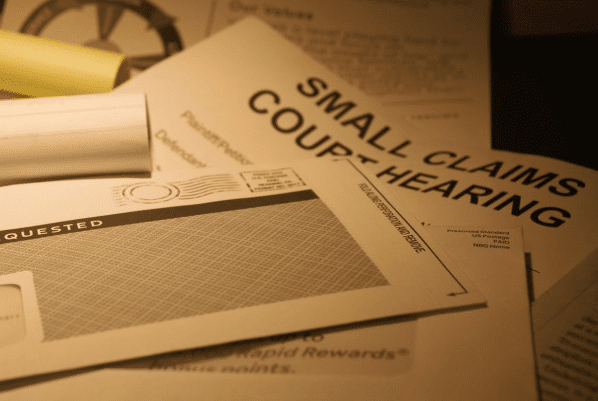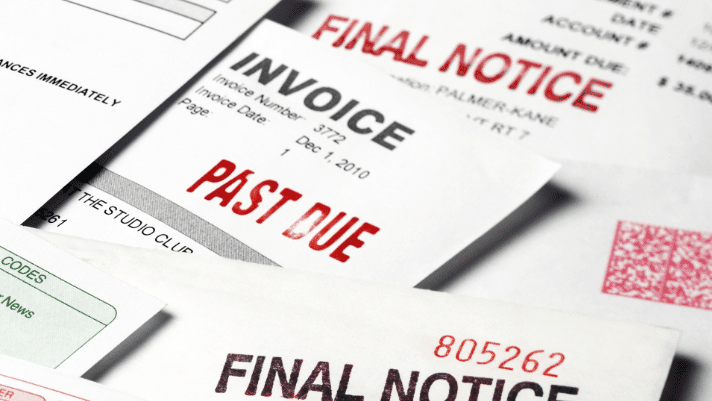Facing a debt collection lawsuit in Nebraska can be daunting, but taking action is crucial. You have a limited window of 30 days to respond to the lawsuit and prevent an automatic default judgment. Responding with a written Answer is imperative, where you address each claim made against you and assert your affirmative defenses.
With ZumaZip, drafting and filing an Answer is made simple and efficient. Our platform guides you through the process step-by-step, enabling you to prepare and submit your response in a matter of minutes. Don’t delay—take control of your legal situation with ZumaZip today.
None of us want to be faced with a debt collection lawsuit, but if you are, the best way to get a positive outcome in court is to take action by responding to the Summons and Complaint. Unfortunately this is easier said than done, and the process can be overwhelming.
Not sure where to begin? ZumaZip is here to guide you through the process of responding to the lawsuit on your own. Or if you’d rather make it easier on yourself, you can use our professional service to create an Answer to the lawsuit in just 15 minutes.
As you work through the process, remember that regardless of the debt you owe, you have rights. When it comes to debt collection laws, Nebraska operates under the U.S. Fair Debt Collection Practices Act (FDCPA). To further explore your rights in Nebraska before you complete your Answer, check out this Collections Handbook from Nebraska Legal Aid.
Table of Contents
- Deadlines
- Steps to Respond
- Statute of Limitations in Nebraska
- Nebraska Legal Aid Organizations
- What is ZumaZip?
- Key Takeaways
- Guides for Other States
Nebraska Deadline for Answering a Debt Collection Summons
Under Nebraska debt collection laws, after you receive a Summons and Complaint, you have 30 days to file an Answer.
An Answer is simply a statement of whether or not you agree that you owe the creditor the money. Regardless of whether you think you owe the debt or not, if you are served with a Summons, it’s crucial to respond. If you fail to submit an Answer within 30 days, a Default Judgment can be entered against you. This means the creditor automatically wins the case, and you have to pay the debt amount that appears on the Summons and Complaint.
Even though you have a month to get this done, it’s a good idea to start early, as there are several steps you need to take in order to submit a successful Answer.
Nebraska Answer to Summons Forms
There are a couple of approaches you can take to creating an Answer.
The first option is to use ZumaZip’s Answer form to respond. We’ll help you create your Answer, have an attorney review it, and make sure it gets to the court and the Plaintiff on time.
This will be easier than doing it on your own or using Nebraska’s Answer and General Denial Form. (Note that you only want to use this Nebraska Answer form if you plan to deny all of the allegations listed on your Summons and Complaint. If you disagree with any of the allegations, you will want to undergo a more intensive process — see below!)
If you’d rather go it alone, we’ll tell you how to create your own Answer below.
Answer Filing Fees for Nebraska
There is no fee to file an Answer in Nebraska.
Steps to Respond to a Debt Collection Case in Nebraska
When you owe a creditor money and they file a debt collection lawsuit in Nebraska, you will be served with a Summons and Complaint that states the allegations against you. Under Nebraska Revised Statute 25-505.01, you can legally be served by mail or in person.
When you receive a Summons and Complaint, don’t blow it off: respond within 30 days, or you could face a Default Judgment and immediately lose your case, which means you’ll have to pay.
To submit an Answer to a Summons and Complaint on your own, you’ll want to start by setting up a properly formatted document. Your document should be typed and look professional, since you’ll submit it to the court where a judge will review it.
For starters, your Answer document needs to be in the right format, known in legal terms as “styling.” Essentially, to meet the formatting guidelines you need to put several key pieces of information at the top of your document.
This should include:
- Your first and last name
- Your address (make sure it’s correct)
- The name of the creditor’s attorney
- The creditor’s name
- Court information (specify whether it is a state or a city court)
- Court address
- Case information (index number, case number, debt amount on the Complaint)
Double-check to make sure you have included all of this information and that it is correct. When you’re done, it’s time to start writing your Answer.
But what should you include in your Answer document? Follow these three steps when drafting your Answer to a debt lawsuit in Nebraska:
- Respond to each allegation included in the Complaint
- Put forth affirmative defenses
- File a copy of your Answer with the court and serve the Plaintiff
Below, we’ll break down each of these steps in detail.
1. Answer each issue of the Complaint
On your Complaint, you’ll see a list of paragraphs with numbers. Each paragraph explains a different allegation against you. What you need to do here is respond to each allegation. You can do this in one of three ways:
- State that the allegation is true
- Deny the allegation
- State that you have insufficient knowledge or information to know whether the allegation is true or untrue
ZumaZip makes it simple to respond the right way.
You always want to be truthful about whether an allegation is true or not. For most of the allegations, the answer will be clear. But there will likely be some allegations you feel uncertain or confused about. If you’re uncertain, you can either deny the allegation or state that you don’t have sufficient knowledge or information to know if it is true. Regardless of how you respond, the allegations will have to be proven in court.
2. Assert affirmative defenses
The next step in creating your Answer is to assert affirmative defenses, or reasons why the plaintiff does not have a case. Below are some of the most common and effective affirmative defenses.
- The account doesn’t belong to you. Whether there is an incorrect account number listed on the Complaint, someone has stolen your identity and created the account, or the account belongs to someone with a similar name to yours, stating that the account isn’t yours (as long as that is true) is a powerful affirmative defense. Ideally, you will want to submit any proof you have as part of your answer.
- You already paid the debt. If you paid all or some of the debt or negotiated a lower payment amount with the creditor and they are still asking you to pay the full amount, use this affirmative defense. If you have proof that you already paid, include it when you submit your Answer.
- The statute of limitations has ended. In Nebraska, the statute of limitations on a debt is four years from your last payment. If four years have expired, you are no longer legally responsible for the debt.
- The amount on the Complaint is incorrect. If there is an error in the original amount listed, or in the interest, late fees, or penalties you can use this affirmative defense. Even if you don’t get out of the debt entirely, you could get the amount you owe reduced to a fair level.
- The debt was discharged when you filed for bankruptcy. While stating that you cannot pay a debt is not an allowable affirmative defense, if your debt was discharged by the creditor during a bankruptcy case, you are no longer legally required to pay it.
- It is uncertain whether the plaintiff holds the debt. In most cases, the party that is suing you is not the original holder of the debt, since creditors often sell uncollected debt to collections agencies. With this affirmative defense, you require the original holder of the debt to prove through evidence that they purchased your debt and now legally hold it.
It’s important to bring up your affirmative defenses in your Answer document, because you might not get the chance to do so if the case moves forward.With ZumaZip you can make the right affirmative defenses the right way.
3. File the Answer with the court and serve the plaintiff
The last step in responding to a Summons and Complaint is properly filing your Answer. But you’d be surprised how often people fail to do this correctly, only to find out that their Answer never arrived and a default judgment has been entered against them.
If you want to be certain that your Answer arrives, ZumaZip can file it for you and ensure that it gets to the right place. Otherwise, you should start by making a copy of your Answer and copies of any documentation you will submit. You will keep all of this for your records.
In addition, you will need to:
- Make two copies of your Answer (including any evidence you have)
- Send one copy to the court at the proper address
- Send one copy to the plaintiff’s lawyer
Before you drop the copies in the mail, make sure you have the court address correct. Sometimes the address does not appear on the Summons or the mailing address for the court is different from the courthouse address.
It’s also a good idea to mail both copies using Certified Mail so you have proof that the documents arrived. Once you’ve mailed everything, put your own copy of the Answer, with any other documentation you submitted, in a safe place.
Statute of Limitations on Debt in Nebraska
In general, the statute of limitations on debt collection in Nebraska is five years from the date you submitted your last payment. If the statute of limitations has expired, you are no longer legally responsible for the debt.
However, keep in mind that if the Nebraska debt collection statute of limitations has expired, you must use this as an affirmative defense in your Answer. If you don’t, you can still be sued. And believe us, creditors will keep trying, so be on guard!
The table below further outlines the statute of limitations on different types of debt in Nebraska:
| Debt Type | Deadline |
|---|---|
| Credit Card | 5 years |
| Medical | 5 years |
| Student Loan | 5 years |
| Auto loan | 5 years |
| Personal loan | 5 years |
| Judgment | 5 years |
| Mortgage | 10 years |
| Neb. Rev. Stat. § 25 |
Nebraska Legal Aid Organizations
All states have government-funded organizations that will provide free legal services to those who need them. Here is Nebraska’s organization: Legal Aid of Nebraska
There are branches in Omaha, Lincoln, Norfolk, Grand Island, Bancroft, Lexington, North Platte, and Scottsbluff.
State Court Locations
You can find a list of state courts with addresses here.
Key Takeaways
Way to go— now you know how to file your Answer to a Summons and Complaint in Nebraska!
As a quick refresher, here’s what you learned:
You have 30 days to file your answer. To submit an Answer successfully, make sure to:
- Create a properly formatted Answer document
- Write a response to each allegation in the Complaint
- Add affirmative defenses to bolster your case
- Serve your answer to opposing counsel and mail a copy to the court
The statute of limitations on debt is generally five years in Nebraska, except for mortgage debt. This means that you creditors and debt collectors only have five years from your last missed payment to sue you over a debt.
Finished reading the guide and still need help? ZumaZip is here for you. We’ll help you get your Answer completed in just 15 minutes, then we’ll have an attorney review it and file it for you.
What is ZumaZip?
ZumaZip is a convenient solution designed to streamline your response to a debt collection lawsuit. Here’s a breakdown of what you can expect when you use ZumaZip:
Firstly, you’ll access our user-friendly web application, which guides you through the process step by step. You’ll be prompted to answer a series of questions related to your specific situation. Once you’ve completed the questionnaire, you have the option to either print out the finalized forms and mail them to the appropriate courts yourself, or you can opt to utilize ZumaZip’s services to file them on your behalf. Additionally, if you choose this option, an attorney will review your document for added peace of mind.
If you’re seeking guidance on how to effectively respond to a debt collection lawsuit, ZumaZip can provide the assistance you need. Feel free to explore our FAQs for more information on what ZumaZip has to offer.
What if I haven’t been sued yet?
If you’ve only received a collections notice, but not a lawsuit, the best way to respond is with a Debt Validation Letter. When a debt collector contacts you in any way, whether it’s by phone or mail, you can respond by formally requesting a debt validation with a Debt Validation Letter . This letter notifies the collector that you dispute the debt and forces them to provide proof you owe the debt. They can’t call you or continue collecting until they provide validation of the debt. This flowchart shows how you can use a Debt Validation Letter to win.
Get started with a Debt Validation Letter here.
How to Answer a Summons for debt collection in all 50 states
Here’s a list of guides on how to respond to a debt collection lawsuit in each state:
- Alabama
- Alaska
- Arizona
- Arkansas
- California
- Colorado
- Connecticut
- Delaware
- Florida
- Georgia
- Hawaii
- Idaho
- Illinois
- Indiana
- Iowa
- Kansas
- Kentucky
- Louisiana
- Maine
- Maryland
- Massachusetts
- Michigan
- Minnesota
- Mississippi
- Missouri
- Montana
- Nebraska
- Nevada
- New Hampshire
- New Jersey
- New Mexico
- New York
- North Carolina
- North Dakota
- Ohio
- Oklahoma
- Oregon
- Pennsylvania
- Rhode Island
- South Carolina
- South Dakota
- Tennessee
- Texas
- Utah
- Vermont; Vermont (Small Claims court)
- Virginia
- Washington
- West Virginia
- Wisconsin
- Wyoming
Guides on how to beat every debt collector
Hey there! Facing off against a debt collector can feel like a daunting challenge, but fear not! We’re here to help you navigate through it all with our handy guides designed to assist you in beating every debt collector you encounter. Whether you’re facing a new lawsuit or dealing with a persistent collector, we’ve got your back. Stay positive, stay informed, and let’s tackle this together!
- Absolute Resolutions Investments LLC
- Accredited Collection Services
- Alliance One
- Amcol Clmbia
- American Recovery Service
- Asset Acceptance LLC
- Asset Recovery Solutions
- Associated Credit Services
- Autovest LLC
- Cach LLC
- Cavalry SPV I LLC
- Cerastes LLC
- Colinfobur
- Covington Credit
- Crown Asset Management
- CTC Debt Collector
- Cypress Financial Recoveries
- Delanor Kemper & Associates
- Eagle Loan of Ohio
- Educap
- Estate Information Services
- FIA Card Services
- Forster & Garbus
- Freshview Solutions
- Fulton Friedman & Gullace LLP
- Harvest Credit Management
- Howard Lee Schiff
- Hudson & Keyse LLC
- Integras Capital Recovery LLC
- Javitch Block
- Jefferson Capital Systems LLC
- LVNV Funding
- Mannbracken
- Mariner Finance
- Medicredit
- Michael J Adams PC
- Michael J Scott
- Midland Funding LLC
- Mullooly, Jeffrey, Rooney & Flynn
- Mountain Land Collections
- MRS Associates
- National Collegiate Trust
- Nationstar Foreclosure
- Northstar Capital Acquisition
- NCEP LLC
- NRC Collection Agency
- OneMain Financial
- Palisades Collection LLC
- Pallida LLC
- Paragon Revenue Group
- Pinnacle Collections Agency
- PMAB LLC
- Portfolio Recovery Associates
- Provest Law
- PYOD LLC
- Reunion Student Loan Finance Corporation
- Revenue Group
- Regents and Associates
- RSIEH
- Salander Enterprises LLC
- Second Round Sub LLC
- Security Credit Services
- Sherman Financial Group
- Suttell and Hammer
- T-Mobile
- Transworld Systems
- Tulsa Teachers Credit Union
- UCB Collection
- Velo Law Office
- Velocity Investments
- Waypoint Resource Group
- Weinberg and Associates
- Wolpoff & Abramson
Settle your medical debt
Having a health challenge is stressful, but dealing medical debt on top of it is overwhelming. Here are some resources on how to manage medical debt.
- Am I Responsible for My Spouse’s Medical Debt?
- Do I Need a Lawyer for Medical Bills?
- Do I Need a Lawyer to Fight Medical Bill Debt?
- Does Bankruptcy Clear Medical Debt?
- How Much Do Collection Agencies Pay for Medical Debt?
- How to Find Medical Debt Forgiveness Programs
- Is There a Statute of Limitations on Medical Bills?
- Medical Debt Statute of Limitations by State
- Summoned to Court for Medical Bills — What Do I Do?
- Summoned to Court for Medical Bills? What to Do Next
Stop calls from Debt Collectors
Do you keep getting calls from an unknown number, only to realize that it’s a debt collector on the other line? If you’ve been called by any of the following numbers, chances are you have collectors coming after you, and we’ll tell you how to stop them.



































